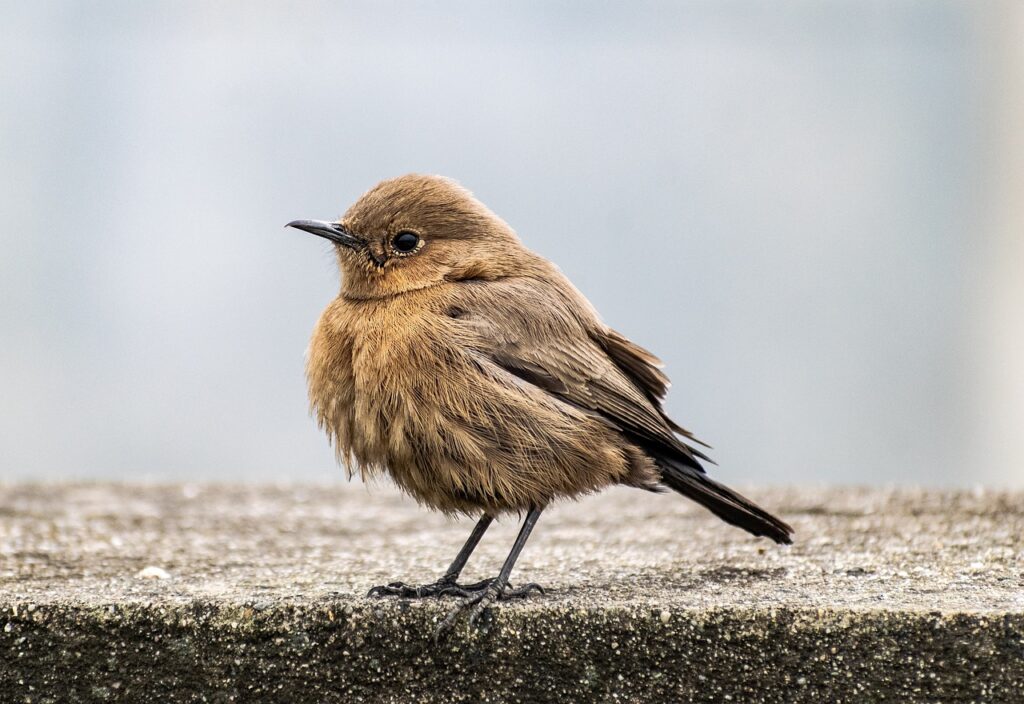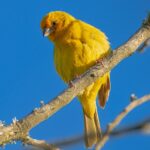Are there specific bird species that need extra care in winter?
Winter can be a challenging time for pet birds and their owners. As temperatures drop and daylight hours shorten, it’s essential to adjust your bird care routine to ensure your feathered friend stays healthy and happy.
Keeping a pet bird during the colder months requires some special attention. Let’s dive into the specifics of winter bird care to make sure your avian companion thrives despite the chill.
“A little extra care can go a long way in keeping your bird comfortable and healthy during the winter months.”
- Temperature Management: Birds are sensitive to temperature fluctuations, so keep their environment warm and stable.
- Hydration: Ensure your bird always has access to fresh water, as indoor heating can cause dehydration.
- Diet Adjustments: Consider tweaking their diet to include more calories and nutrients to help them maintain body heat.
- Lighting: Mimic natural sunlight by providing additional lighting if necessary, to avoid seasonal depression in birds.
With just a few adjustments and some extra care, you can ensure that winter won’t put a damper on your bird’s well-being. Your attentive efforts will help maintain their comfort and health throughout the season.
What temperature is too cold for pet birds?
It’s important to understand that exposing your feathered friend to temperatures cooler than 18°C (or 64.4°F) can be quite dangerous. A pet bird’s well-being largely depends on maintaining a warm and stable environment, especially during the colder months. Exotic pets like birds are particularly susceptible to the cold and may even stop eating or exhibit signs of illness if they aren’t kept sufficiently warm.
To ensure your bird stays cozy, consider covering the cage at night. This simple measure can help maintain a comfortable temperature, shield your bird from drafts, and block out disruptive light and noise, all of which promote better sleep. If the temperature dips below 60°F at night, a winter bird cage cover becomes particularly useful.
Additionally, placing your bird’s cage away from doors and windows can significantly reduce exposure to drafts and sudden bursts of cold air, which can stress your bird’s immune system and lead to illness. Observing your bird for signs of cold stress, such as sitting with feathers fluffed up, is crucial. If this behavior persists, consult your local veterinarian for advice.
Creating cozy perches and consistently monitoring your bird for any signs of discomfort will also go a long way in ensuring they remain healthy and happy throughout the winter season. Keep your avian companion warm and snuggly by paying attention to their environment and making the necessary adjustments to guard against the chilling effects of winter.
What are the best ways to keep my pet bird warm during winter?
Maintaining a cozy environment for your bird is crucial. Beyond just keeping their cage inside, consider relocating it to a central part of your home where the temperature is more stable. Steer clear of placing the cage near frequently opened doors or near windows, as these spots can be drafty and chilly.
Additional Tips:
- Cage Covers: Using a cage cover at night can significantly help maintain warmth. A winter bird cage cover is especially beneficial as it also reduces light and noise, creating a more secure environment for your bird.
- Bird-Safe Heaters: Invest in a Snuggle-up bird cage warmer. These devices are designed to provide gentle heat, but remember to adhere to the manufacturer’s guidelines to avoid overheating. Make sure the heater is specifically meant for birds.
- Avoid Drafts: Ensuring the cage is placed in a draft-free location throughout the day is just as important as covering it at night. Check for drafts around windows and doors, and reposition the cage if necessary.
Beyond just the environmental adjustments, pay close attention to your bird’s behavior. Birds that are cold might fluff up their feathers or shiver. If you notice these signs, make further adjustments to their habitat or heating solutions.
Finally, don’t forget about diet. Birds often require more calories to maintain their body heat during colder months. Offering a healthy, balanced diet supplemented with fatty seeds or nuts can provide the additional energy they need. Always consult an avian veterinarian if you have concerns about your bird’s diet or health.
What are the ideal indoor temperatures for pet birds during winter?
Pet birds are highly sensitive to temperature changes, and maintaining an ideal indoor temperature during winter is crucial for their health. Generally, the ideal temperature range for most pet birds is between 65°F and 80°F (18°C to 27°C). This range ensures that the birds remain comfortable and are not exposed to the risks associated with cold stress.
It’s important to note that sudden temperature fluctuations can be particularly harmful to pet birds. Consistency is key, so aim to keep the indoor environment stable. If your home tends to get colder at night, consider using a space heater or a bird-safe heat lamp to maintain a consistent temperature.
Different species of birds may have varying temperature preferences. For example, tropical birds like parrots and cockatiels may prefer the higher end of the temperature range, while birds from temperate regions may be more tolerant of slightly cooler conditions. Researching the specific needs of your bird species can help you provide the most suitable environment.
Humidity levels also play a role in your bird’s comfort and health. During winter, indoor heating can lead to dry air, which can affect your bird’s respiratory system and skin. Aim to maintain a humidity level between 40% and 60% to ensure a comfortable environment. Using a humidifier can help achieve this balance.
Positioning your bird’s cage away from drafts, windows, and doors is essential to prevent exposure to cold air. Drafts can cause sudden drops in temperature, which can be detrimental to your bird’s health. Instead, place the cage in a central, well-insulated part of your home where the temperature remains more stable.
What types of bird cages and covers are best for insulation?
When selecting a bird cage for winter, opt for one made of sturdy materials like stainless steel or powder-coated metal. These materials are not only durable but also provide better insulation against the cold compared to thinner, flimsier cages. Additionally, cages with solid sides or panels can offer extra protection from drafts, which is crucial for maintaining a stable temperature inside the cage.
The size of the cage is also important. While larger cages are generally better for a bird’s overall well-being, ensure that the cage is not so large that it becomes difficult to keep warm. A moderately sized cage that allows your bird to move freely but is still manageable to insulate is ideal. You can also consider adding a smaller, secondary cage for nighttime use, which can be more easily insulated and kept warm.
Bird cage covers are essential for insulation during the winter months. Look for covers made from thick, quilted materials that can trap heat effectively. Fleece and heavy-duty cotton are excellent choices. These materials not only provide warmth but also block out drafts and light, creating a cozy environment for your bird to sleep in. Ensure the cover fits snugly around the cage to prevent any gaps where cold air could enter.
In addition to commercial cage covers, you can also use blankets or towels as makeshift covers. However, be cautious with these materials to avoid any potential hazards, such as loose threads that your bird might ingest. Always ensure that the cover allows for adequate ventilation to prevent the buildup of harmful gases like carbon dioxide.
Another option for insulating your bird’s cage is to use thermal perches and heated pads. These accessories can provide localized warmth, helping to maintain a comfortable temperature within the cage. Thermal perches are designed to be safe for birds to stand on, while heated pads can be placed under the cage or in specific areas to create warm spots. Ensure that any electrical heating elements are bird-safe and have built-in thermostats to prevent overheating.
Are there specific foods that help keep pet birds warm?
A balanced diet is essential for keeping your pet bird healthy and warm during the colder months. During winter, birds might need more calories to maintain their body heat. Therefore, offering slightly larger portions and more frequent feedings can help. Consider incorporating high-energy foods such as seeds, nuts, and certain grains. These can provide the extra calories your bird needs.
Fresh fruits and vegetables are also important, offering vital nutrients that support overall health. However, it’s beneficial to add more protein-rich foods like boiled eggs and cooked beans. This can help ensure your feathered friend gets the necessary energy to stay warm.
- Seeds and Nuts: Excellent for added calories. Be mindful of the types and avoid those high in fat.
- Cooked Grains: Opt for whole grains like quinoa or brown rice, which are nutritious and energy-dense.
- Protein-rich Foods: Eggs and beans can provide the extra protein chickens need in winter.
- Fresh Produce: Maintain a good mix of fruits and veggies to supply essential vitamins and minerals.
Keep an eye on your bird’s food intake and weight. Sometimes, larger birds might need heated perches to conserve energy better, allowing them to use nutrients more efficiently. Staying vigilant about any changes in their eating habits or weight is key to ensuring optimal health and warmth during the colder months.
What type of heating equipment is safe for pet birds?
When it comes to keeping our feathered friends warm, safety is paramount. Birds have highly sensitive respiratory systems, so many common heating solutions for humans can be harmful. Avoid using space heaters, gas fireplaces, and other typical winter heating devices as they can emit fumes and particles detrimental to your pet’s health.
An excellent alternative is a Snuggle-up bird cage warmer. This is a thermostatically controlled heating pad designed to keep your bird’s sleep perch at the optimal temperature. It provides gentle, consistent warmth, ensuring your bird stays cozy without risking overheating. Always follow the manufacturer’s guidelines to ensure that the device is used safely and effectively.
Another bird-safe option includes ceramic heat emitters. These emit heat without light, mimicking the natural warming effect without disrupting your bird’s sleep cycle. Be sure to use these with a thermostat to maintain a stable and safe temperature.
To create a consistently warm environment, consider relocating the bird’s cage to a central part of your home, away from drafty windows and doors. At night, covering the cage with a breathable blanket can help trap heat and create a snug atmosphere for your bird, mimicking the warmth they would naturally seek in the wild.
By focusing on bird-specific heating solutions and carefully monitoring your pet’s comfort, you can ensure they stay warm and healthy throughout the winter months.
How do I keep my pet bird active during the cold months?
Keeping your pet bird active during the brisk winter months is essential to their well-being. Start by ensuring they get ample mental stimulation. Birds are intelligent creatures and activities like puzzle toys, foraging games, and interactive time with you can engage their minds and bodies.
Introduce New Toys: Rotate toys regularly to keep things exciting. Opt for toys that challenge your bird to think—a little challenge goes a long way in keeping their spirits high.
Create a Safe Indoor Playground: Set up a play area outside the cage where your bird can explore safely. Use climbing nets, swings, and ladders to encourage movement. This will allow your bird to stretch their wings—even without flying outside.
Schedule Playtime: Dedicate time each day for interactive sessions. Whether you’re teaching a new trick or simply letting your bird perch on your shoulder while you read, this bonding time is invaluable during colder days.
Healthy Diet: Nutrition is crucial. Winter can make birds more lethargic, so complement their playtime with a balanced diet rich in fresh fruits, vegetables, and high-quality bird seed. This ensures they have the energy needed to stay active.
Light Exposure: Ensure your bird gets enough light exposure. The reduced daylight of winter can affect their mood. Consider using full-spectrum lighting designed for birds to simulate natural sunlight and regulate their circadian rhythms.
By focusing on these aspects, you’ll help keep your pet bird not only warm but also happy and active throughout the winter months.
Are there specific bird species that need extra care in winter?
Certain bird species are more susceptible to cold weather and require extra care during the winter months. Tropical and subtropical species, such as parrots, parakeets, and cockatiels, are particularly vulnerable because they are not naturally adapted to colder climates. These birds originate from warm environments and can struggle to maintain their body temperature when exposed to cold conditions.
Smaller bird species, like finches and canaries, also need additional care in winter. Due to their small size, they have a higher surface area to volume ratio, which makes it harder for them to retain heat. Ensuring their living environment is warm and draft-free is crucial to prevent them from becoming chilled.
Birds with health issues or those that are older may also require extra attention during the winter. Their immune systems may not be as robust, making them more susceptible to cold-related illnesses. Providing supplemental heat sources and monitoring their health closely can help mitigate these risks.
Species with less dense feathering, such as African Grey Parrots, may also need additional warmth. Unlike some birds that have thick plumage to insulate them against the cold, these birds have less natural insulation and can become cold more easily. Ensuring they have a warm, cozy environment is essential for their well-being.
What are common health issues for birds in winter and how to prevent them?
During winter, pet birds are susceptible to respiratory infections due to cold drafts and sudden temperature changes. To prevent these issues, ensure your bird’s cage is placed away from windows and doors where cold air can seep in. Additionally, maintaining a stable indoor temperature with the help of space heaters or heating pads specifically designed for birds can provide a warm environment.
Another common health issue in winter is dry skin and feather problems. The low humidity levels during the colder months can lead to dry, flaky skin and brittle feathers. To combat this, use a humidifier in the room where your bird is kept to maintain an optimal humidity level. Regular misting with water or providing a shallow dish for bathing can also help keep their skin and feathers hydrated.
Reduced daylight hours in winter can lead to vitamin D deficiency in birds, which is crucial for their overall health. To prevent this, ensure your bird gets adequate exposure to natural sunlight or use full-spectrum lighting designed for birds. These lights mimic natural sunlight and help in the synthesis of vitamin D.
Birds can also suffer from nutritional deficiencies during winter if their diet is not adequately adjusted. The cold weather increases their metabolic rate, requiring more energy. Provide a balanced diet rich in seeds, pellets, fruits, and vegetables to ensure they get all the necessary nutrients. Supplements like calcium and vitamins can also be beneficial but should be used under the guidance of a veterinarian.
Stress and behavioral issues can arise in birds during winter due to changes in their environment and routine. To mitigate stress, keep a consistent daily schedule for feeding, cleaning, and interaction. Enrich their environment with toys and activities to keep them mentally stimulated and reduce anxiety.
Lastly, ensure regular veterinary check-ups during the winter months. A veterinarian can provide professional advice tailored to your bird’s specific needs and catch any potential health issues early. Regular health check-ups are crucial for monitoring your bird’s condition and making necessary adjustments to their care routine.
Winter can be a challenging time for your feathered friend, but with the right care and attention, you can ensure they remain healthy and happy. Focus on creating a warm and comfortable environment, provide a nutritious diet, and stay vigilant for any signs of discomfort or illness. With a bit of planning and love, you and your pet bird will breeze through the colder months with ease. Remember, a little extra care goes a long way in keeping your avian companion content and safe during winter’s chill.



